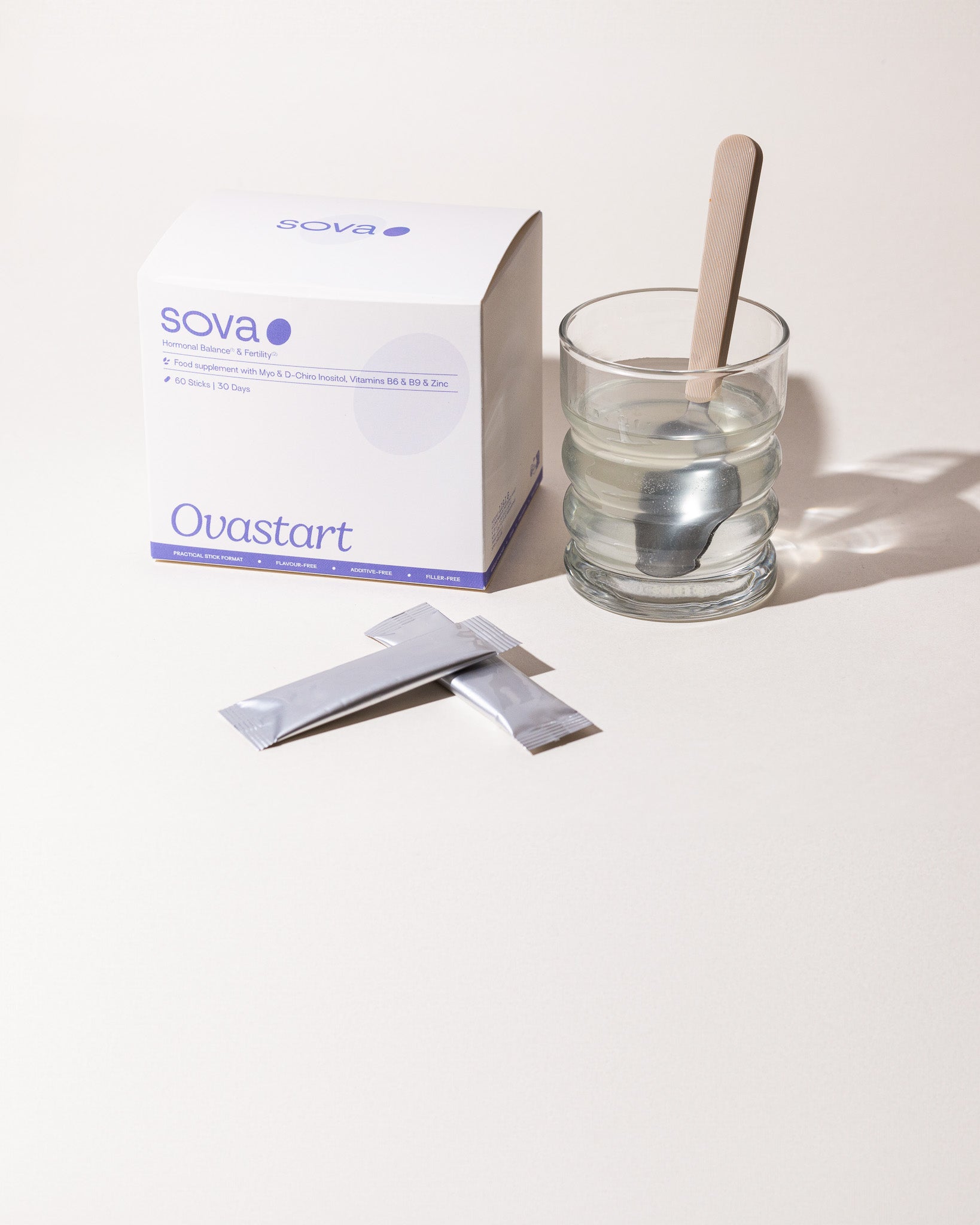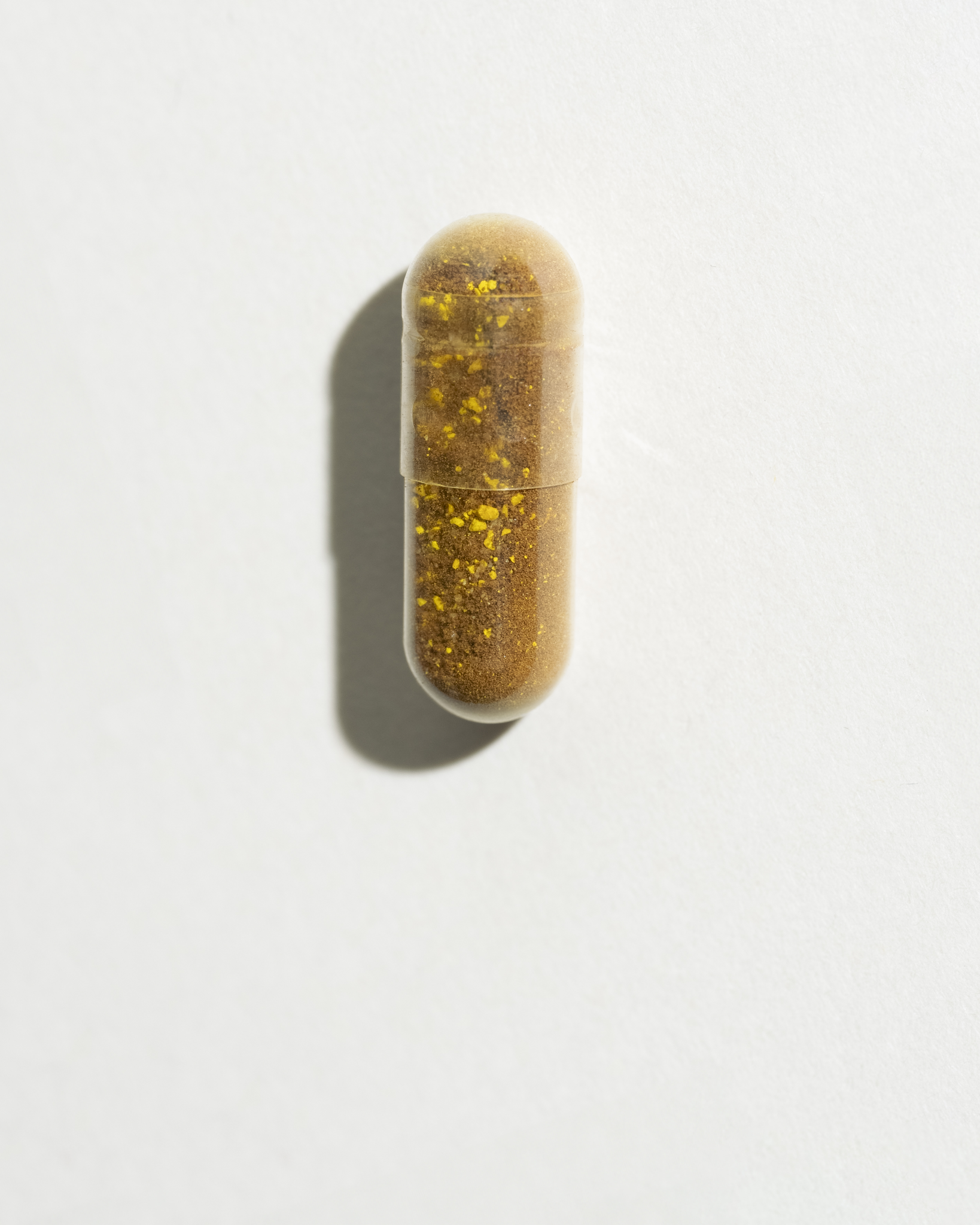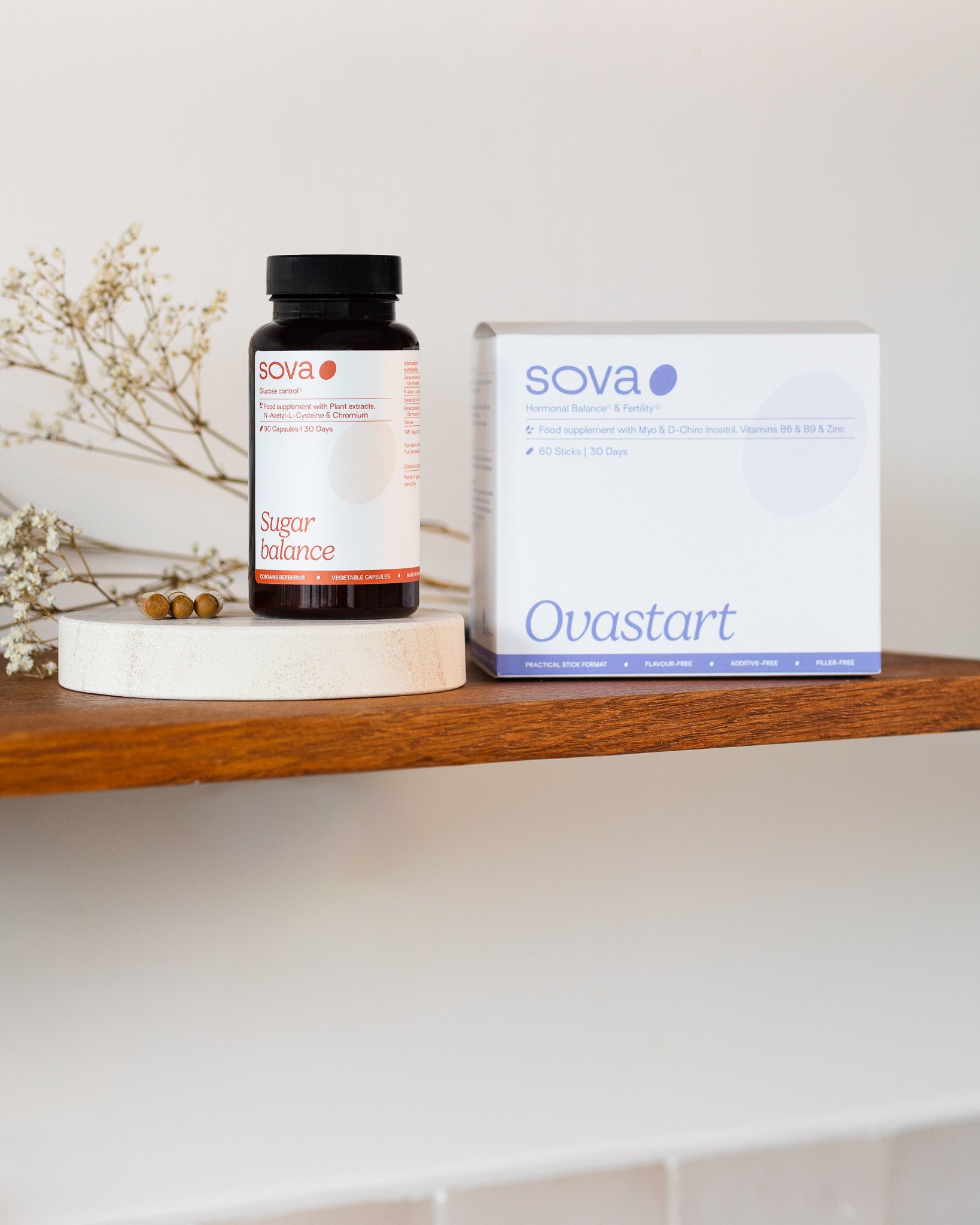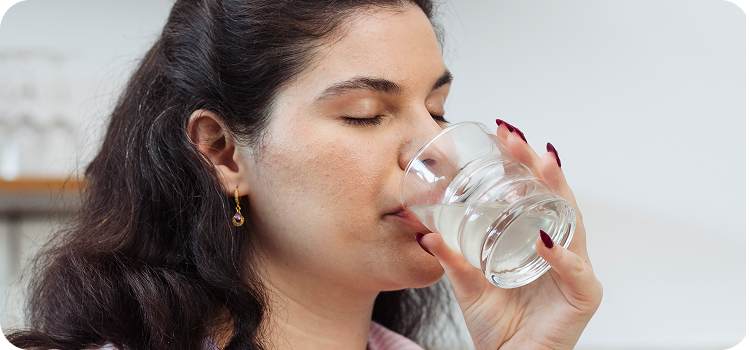Table of contents
This is one of the first questions asked to the gynaecologist once the diagnosis is made: can this syndrome be cured? And if so, how?
This question is entirely legitimate because PCOS is a syndrome that can have multiple consequences on a woman's health and fertility.
Here’s the straight answer: it depends. Indeed, everything will depend on your type of PCOS.
In this article, we will explain why, in some very specific instances, it is possible to see PCOS disappear, and why, in the majority of cases, there is currently no treatment. Rest assured that if you’re in the majority group, it is still entirely possible to live a normal life by implementing good practices on a daily basis.
Recap on PCOS
As a reminder, PCOS is a hormonal imbalance that affects an estimated 8–13% of women of reproductive age with up to 70% of cases left undiagnosed, according to the WHO. It is also the leading cause of infertility.
The diagnosis of PCOS is established by a doctor based on the Rotterdam criteria:
- Clinical hyperandrogenism (that is, visible to the naked eye and, for example: hirsutism, acne, abnormal hair loss...) or biological hyperandrogenism (visible only through blood tests)
- Irregular ovulation or anovulation (usually cycles are irregular, and in some cases, women do not have cycles at all)
- Increased ovarian volume and/or a "polycystic" appearance on an ultrasound scan (meaning an ovarian volume greater than 10ml or the presence of more than 12 follicles per ovary).
You must have at least 2 of these 3 criteria to be diagnosed.
👉 Want to know more? Read our article What is PCOS.
What types of PCOS can disappear?
Post-pill PCOS
This is just "transient" PCOS. When you decide to stop taking the pill, it takes time for the body to readjust. For some of us, this happens very quickly (from the first month), while for others, it can take much longer (up to 1 year).
The whole challenge lies with reinitiating ovulation. Sometimes our body may not succeed despite several attempts. This puts us in a situation similar to PCOS: without ovulation, follicles accumulate in the ovaries and fail to mature properly. This is what gives a polycystic ultrasound appearance to the ovaries.
The accumulation of follicles can lead to signs of hyperandrogenism: this is because testosterone is partly secreted by these follicles. The more follicles we have in our ovaries, the higher testosterone levels may become, causing unpleasant manifestations such as acne or hirsutism.
Upon stopping the pill, we can find ourselves in the following situation:
- Ovaries with a polycystic appearance on ultrasound
- Manifestations of hyperandrogenism
- Irregular cycles
In other words... all the symptoms of PCOS!
At this point, we need to be particularly cautious. It is necessary to wait for several months after stopping the pill before a diagnosis can be properly made.
Most of the time, post-pill PCOS will disappear on its own after a few months (often between 3 to 9 months).
Feel free to discuss this with your gynaecologist if you have any doubts.
Many of us have noticed PCOS symptoms following an emotional shock or a pregnancy, for example. While stress and pregnancy are not direct causes of PCOS, these significant physical and psychological upheavals can be triggering factors. PCOS was already present but without clinical (apparent) symptoms. It was just waiting for a weakness.
In such cases, it is possible for the symptoms to fade away with time. However, action may be necessary.
💡 Tip: During this adjustment phase, support your hormonal balance with Ovastart, our inositol-based supplement enriched with zinc and key B-vitamins to promote cycle regularity and hormonal health.
Misdiagnosed PCOS
These are PCOS cases that can disappear simply because they weren’t PCOS to start with! Just like stopping the pill, there are other situations where PCOS can be confused with another pathology.
Here are the most common ones:
Hypothyroidism
The thyroid is the “metabolic conductor” of our body. When it works slowly, it affects many vital functions, such as digestion (slow transit, constipation) or the menstrual cycle (irregular or absent).
As we have already explained for post-pill PCOS, slow/absent cycle → absence of ovulation → accumulation of follicles in the ovaries → symptoms suggestive of PCOS.
Sometimes, normalising thyroid function is enough to make the symptoms disappear. However, this needs to be considered carefully because PCOS and hypothyroidism are often closely intertwined; it is entirely possible for your PCOS to be the cause of hypothyroidism and not the other way around.
Hyperprolactinaemia
Prolactin is a hormone typically secreted by women when breastfeeding their baby. Its purpose is to block ovulation while breastfeeding, preventing a rapid return to pregnancy after childbirth.
However, some women may secrete prolactin outside of pregnancy or breastfeeding. This may then lead to ovulation blockage and the resulting consequences: an accumulation of follicles in the ovaries which is one of the PCOS symptoms.
Often, the symptoms disappear on their own when prolactin levels return to normal.
Congenital Adrenal Hyperplasia
This is a genetic disease often detected at birth. It causes an overproduction of androgens and virilization symptoms (hirsutism, acne, etc.) which can be confused with adrenal PCOS.
Cushing's Syndrome
Yet another pathology whose symptoms closely resemble those of PCOS!
Cushing's syndrome is linked to a cortisol overproduction with consequences on ovarian function which include disturbed ovulation and hyperandrogenism... Does that sound familiar?
PCOS is also a diagnosis made by exclusion. That is, before getting a PCOS label, your doctor must absolutely verify that your symptoms are not caused by other pathologies. Otherwise, you risk receiving incomplete or inappropriate treatment and may not improve.
Feel free to open a dialogue with your healthcare professional to undergo a comprehensive hormonal assessment if deemed necessary.
👉 Read more about the different PCOS types.
Today, PCOS cannot be cured.
Unfortunately, as you have gathered, we cannot yet talk about a cure for PCOS. If you heard of women’s testimonies stating they "cured" their PCOS, they were probably in the situations detailed above.
PCOS is a hormonal issue every affected woman must learn to deal with throughout her life. Nothing is settled and while sometimes symptoms may seem to disappear, at others, they come back with a vengeance.
But here’s the good news: PCOS is manageable.
✅ With diet
✅ With lifestyle changes
✅ With the right supplements
…and with the right guidance, you can keep symptoms under control and live fully.
Why is there no treatment yet?
The reason why, to date, there is no treatment for PCOS lies with the fact that PCOS is a complex and multifactorial condition whose origin is still poorly understood.
Addressing PCOS requires a simultaneous intervention on different levels:
- Hormones
- Metabolism
- Central Nervous System
Research is still in its early stages. The scientific community has recently discovered that PCOS could be caused by factors such as:
- Heredity (transmission from parents)
- Environment, endocrine disruptors
- Overexposure during pregnancy to maternal AMH (Anti-Müllerian Hormone)
Finally, if a therapist promises to cure your PCOS, get up and run away! The only promise we can make to women with PCOS is to help them tame PCOS and help keep the symptoms under check as much as possible. The good news is that it actually works ❤️.
🛠️ Managing PCOS: What Works
There’s no “magic pill” — but there is a toolkit.
✨ Ovastart — supports hormonal balance, regulates cycles, and helps reduce androgen-driven symptoms like acne or excess hair.
✨ Sugar Balance — helps manage insulin resistance (a key PCOS driver) with a blend of botanicals and minerals.
✨ Balance Bundle — combines Ovastart + Sugar Balance for full-spectrum support (hormones + blood sugar).
🎯 Ready to take the first step?
Not sure which supplement fits your symptoms?
👉 Take our free PCOS Product Quiz and get a personalised recommendation.
SOVA was created by two sisters with PCOS who wanted products that truly worked. Our formulas are developed in-house with women’s health and micronutrition experts, using ingredients backed by clinical studies and compliant with European regulations.
- Built by women with PCOS, we know the reality of the symptoms.
- Clinically studied, high-quality ingredients, including patented forms like Quatrefolic® and an optimal Myo-/D-Chiro Inositol ratio.
- Holistic support for hormonal balance, metabolic health, inflammation, mood and cycle regulation.
- Transparent, science-led formulas with no unnecessary additives.




















